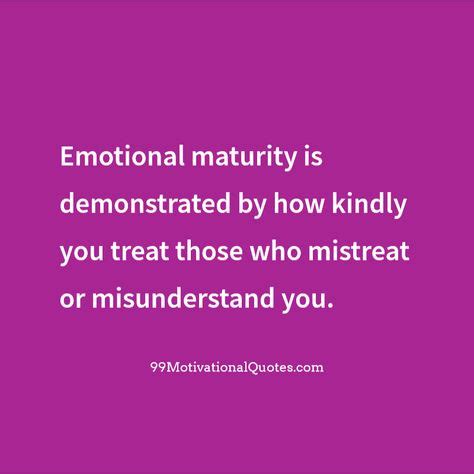
Many adults are realizing that emotional maturity isn’t an automatic consequence of aging, but a skill developed through conscious effort and often, hard-won experience. Online discussions highlight the difficult but crucial lessons people wish they had understood earlier about relationships, personal responsibility, and self-awareness. These truths, though sometimes painful to accept, are essential for building healthier and more fulfilling lives.
Emotional maturity often involves confronting uncomfortable realities about oneself and others. A recent online thread explored these “hard pills to swallow,” revealing common regrets and realizations. “One of the most common themes was the importance of taking responsibility for one’s own emotions and actions,” rather than blaming external factors, according to the discussions. This shift in perspective is often triggered by challenging experiences, such as relationship failures, professional setbacks, or personal crises.
The thread emphasized that managing expectations is a cornerstone of emotional maturity. Participants noted the importance of recognizing that not everyone will meet your needs or expectations, and that people are often motivated by their own self-interest. It’s crucial to discern when to accept others as they are and when to set boundaries for self-protection. Setting these boundaries is not about being selfish, but rather a necessary act of self-preservation and respect.
Another recurrent theme was the recognition that life isn’t fair. While acknowledging the inherent injustices in the world can be disheartening, accepting this reality is essential for developing resilience and focusing on what one can control. Instead of dwelling on unfairness, emotionally mature individuals channel their energy into positive action and finding solutions to the challenges they face.
Furthermore, the discussion highlighted the importance of self-awareness. Understanding one’s own triggers, biases, and emotional patterns is crucial for managing reactions and building healthier relationships. This self-awareness often comes from introspection, therapy, or simply paying attention to one’s thoughts and feelings in different situations. Recognizing these patterns allows individuals to make more conscious choices about how they respond to stimuli, promoting greater emotional stability.
Effective communication emerged as another critical component of emotional maturity. Learning to express one’s needs and boundaries assertively, without resorting to aggression or passive-aggression, is essential for building healthy relationships. This also involves active listening and empathy, allowing individuals to understand and validate the perspectives of others, even when they disagree.
Finally, the thread underscored the importance of continuous self-improvement. Emotional maturity isn’t a destination but a journey, requiring ongoing effort and a willingness to learn and grow. This involves embracing vulnerability, seeking feedback from trusted sources, and being open to changing one’s perspectives and behaviors. The willingness to adapt and evolve is a hallmark of emotional maturity, enabling individuals to navigate life’s challenges with greater resilience and grace.
One key realization is that “other people’s opinions of you are none of your business.” Focusing on internal validation and self-acceptance is far more productive than seeking external approval. Emotionally mature individuals understand that they cannot control what others think or say about them, and they refuse to let those opinions dictate their self-worth.
The online discussion also shed light on the misconception that emotional maturity equates to suppressing emotions. On the contrary, it involves acknowledging and processing emotions in a healthy way, without letting them control one’s behavior. This requires developing coping mechanisms for dealing with difficult emotions, such as sadness, anger, and anxiety, and seeking support when needed.
The pursuit of emotional maturity is a lifelong journey marked by self-discovery, acceptance, and continuous growth. By embracing these difficult truths and committing to personal development, individuals can cultivate healthier relationships, navigate life’s challenges with greater resilience, and live more fulfilling lives. It involves learning from past mistakes, forgiving oneself and others, and focusing on the present moment. It also requires recognizing that emotional maturity is not about perfection, but about progress.
The journey towards emotional maturity also involves understanding that everyone makes mistakes and learning to forgive oneself and others. Holding onto grudges and resentments can hinder emotional growth and damage relationships. Letting go of past hurts allows individuals to move forward and build healthier connections.
Furthermore, emotionally mature individuals understand the importance of self-care. Taking care of one’s physical, emotional, and mental health is essential for maintaining well-being and managing stress. This involves engaging in activities that promote relaxation, such as exercise, meditation, or spending time in nature. It also involves setting boundaries to protect one’s time and energy, and prioritizing self-care needs.
Ultimately, emotional maturity is about developing the skills and qualities needed to navigate life’s challenges with grace, resilience, and compassion. It is a continuous process of self-discovery, growth, and adaptation. By embracing these difficult truths and committing to personal development, individuals can cultivate healthier relationships, achieve greater success, and live more fulfilling lives.
The journey toward emotional maturity isn’t easy, but the rewards are substantial. Individuals who prioritize emotional growth often experience greater happiness, stronger relationships, and increased resilience in the face of adversity. It is an investment in oneself that yields lifelong benefits.
Frequently Asked Questions (FAQ)
- What is emotional maturity?
Emotional maturity is the ability to understand and manage one’s emotions, take responsibility for one’s actions, and navigate relationships and life’s challenges with empathy and resilience. It involves recognizing one’s own emotional triggers, biases, and patterns and developing healthy coping mechanisms for dealing with difficult emotions. It’s not an inherent trait of age but a developed skill, requiring conscious effort and learning through experience. Emotionally mature individuals can maintain composure under pressure, communicate effectively, and demonstrate self-awareness in their interactions. It also includes setting healthy boundaries and prioritizing self-care.
- Why is emotional maturity important?
Emotional maturity is crucial for building and maintaining healthy relationships, both personal and professional. It enables individuals to communicate effectively, resolve conflicts constructively, and empathize with others. It also fosters resilience in the face of adversity, allowing individuals to bounce back from setbacks and adapt to change. Emotionally mature individuals are better equipped to manage stress, make sound decisions, and lead fulfilling lives. Furthermore, it enhances self-awareness, promoting personal growth and a greater understanding of oneself. The absence of emotional maturity can lead to strained relationships, poor decision-making, and difficulty coping with life’s challenges. Ultimately, emotional maturity contributes to overall well-being and success in various aspects of life.
- What are some common signs of emotional immaturity?
Common signs of emotional immaturity include blaming others for one’s own mistakes, difficulty managing emotions, a lack of empathy, impulsive behavior, poor communication skills, difficulty accepting responsibility, a tendency to overreact to situations, and an inability to set healthy boundaries. Emotionally immature individuals may struggle with maintaining stable relationships, often experiencing conflicts and misunderstandings due to their inability to regulate their emotional responses or understand others’ perspectives. They may also exhibit a sense of entitlement or a lack of accountability for their actions. Another sign is a consistent need for external validation and an inability to self-soothe during times of distress.
- How can someone develop emotional maturity?
Developing emotional maturity requires a conscious effort and a willingness to learn and grow. Some strategies include practicing self-reflection, seeking therapy or counseling, learning effective communication skills, practicing empathy, setting healthy boundaries, taking responsibility for one’s actions, developing coping mechanisms for managing difficult emotions, and focusing on self-care. Additionally, learning to forgive oneself and others is crucial for emotional growth. It involves actively listening to others, considering different perspectives, and understanding the impact of one’s behavior on others. Seeking feedback from trusted sources and being open to constructive criticism can also accelerate the process.
- What role does self-awareness play in emotional maturity?
Self-awareness is a cornerstone of emotional maturity. Understanding one’s own emotions, triggers, biases, and patterns is essential for managing reactions and building healthier relationships. Self-awareness allows individuals to recognize how their emotions and behaviors impact others and to make more conscious choices about how they respond to different situations. It also enables individuals to identify their strengths and weaknesses and to work on areas where they need to improve. Developing self-awareness often involves introspection, journaling, mindfulness practices, and seeking feedback from trusted sources. By understanding themselves better, individuals can cultivate greater emotional stability and build stronger, more fulfilling relationships.
The journey to emotional maturity involves acknowledging uncomfortable truths and actively working on personal growth. It is not about achieving perfection but rather about making progress and continuously striving to become a better version of oneself.
The online discussion further emphasized the importance of accepting that “life isn’t fair,” a realization that can be particularly difficult for those who have experienced significant hardships or injustices. Acknowledging this reality, however, is crucial for developing resilience and focusing on what one can control. Instead of dwelling on unfairness, emotionally mature individuals channel their energy into positive action and finding solutions to the challenges they face.
Another common theme was the importance of forgiving oneself for past mistakes. Holding onto guilt and regret can hinder emotional growth and prevent individuals from moving forward. Learning to accept that everyone makes mistakes and forgiving oneself for those mistakes is essential for self-compassion and emotional healing.
The discussion also highlighted the importance of setting healthy boundaries in relationships. Boundaries are essential for protecting one’s time, energy, and emotional well-being. Emotionally mature individuals understand the importance of saying “no” to requests that would compromise their values or well-being. Setting boundaries is not about being selfish, but rather about prioritizing self-care and maintaining healthy relationships.
Moreover, the online conversation emphasized the importance of letting go of the need to control others. Trying to control other people’s behavior or opinions is often a futile and frustrating exercise. Emotionally mature individuals understand that they cannot control others and focus instead on controlling their own actions and reactions. They accept that people are different and that they have the right to make their own choices, even if those choices differ from their own.
The participants also touched on the importance of learning to manage expectations in relationships. Expecting too much from others can lead to disappointment and resentment. Emotionally mature individuals understand that people are not perfect and that they will inevitably make mistakes. They accept others as they are, flaws and all, and focus on appreciating their positive qualities.
The online thread also revealed a common regret: not prioritizing mental health earlier in life. Many participants wished they had sought therapy or counseling sooner, recognizing the benefits of professional support in navigating life’s challenges. Taking care of one’s mental health is essential for overall well-being and emotional maturity.
In addition to the points above, many participants underscored the importance of recognizing one’s own limitations. Accepting that one cannot be good at everything or know everything is a sign of emotional maturity. It allows individuals to focus on their strengths, delegate tasks to others, and seek help when needed.
Furthermore, the online discussion emphasized the importance of embracing vulnerability. Being willing to be open and honest about one’s feelings and experiences is essential for building authentic connections with others. Vulnerability requires courage, but it is also a sign of strength.
The pursuit of emotional maturity is a lifelong journey that requires commitment, self-reflection, and a willingness to learn and grow. By embracing these difficult truths and implementing these strategies, individuals can cultivate healthier relationships, navigate life’s challenges with greater resilience, and live more fulfilling lives.
The online discussion also highlighted the concept of “radical acceptance,” which involves accepting reality as it is, without resistance or judgment. This does not mean condoning negative behavior or giving up on efforts to improve the world, but rather accepting the present moment and focusing on what one can control. Radical acceptance can be particularly helpful in dealing with difficult situations, such as loss, illness, or disappointment.
The thread also underscored the importance of practicing gratitude. Focusing on the positive aspects of one’s life can improve mood, reduce stress, and enhance overall well-being. Taking time each day to appreciate the good things in life, no matter how small, can make a significant difference in one’s emotional state.
Furthermore, the online conversation touched on the importance of developing a sense of purpose. Having a sense of purpose in life can provide meaning, motivation, and direction. This purpose can be found in one’s work, relationships, hobbies, or community involvement.
Finally, the online discussion emphasized the importance of continuous learning and growth. Emotional maturity is not a destination but a journey, requiring ongoing effort and a willingness to learn from experiences and adapt to change. This involves staying curious, seeking new knowledge, and embracing opportunities for personal development.
Another crucial aspect of emotional maturity discussed in the online forum was the ability to delay gratification. Impulsive decisions often lead to negative consequences, whereas the ability to think long-term and prioritize goals demonstrates emotional regulation. This can range from saving money instead of making an impulse purchase to working towards a career goal that requires sustained effort over time. The ability to delay gratification is strongly correlated with success in many areas of life.
The discussions also highlighted the significance of developing a strong sense of self-worth that is independent of external validation. Relying on others for approval can lead to feelings of insecurity and dependence. Emotionally mature individuals derive their sense of worth from within, based on their values, accomplishments, and contributions to the world. This internal sense of validation provides a solid foundation for self-confidence and resilience.
The online contributors also stressed the importance of understanding that everyone is on their own journey, and comparing oneself to others is often counterproductive. Social media often presents an idealized version of reality, which can lead to feelings of inadequacy and envy. Emotionally mature individuals focus on their own progress and celebrate their own achievements, without comparing themselves to others. They recognize that everyone has their own unique path to follow.
One significant realization shared in the online discourse was the importance of forgiving those who have wronged you. Holding onto resentment and anger can be detrimental to one’s own well-being. Forgiveness does not mean condoning the other person’s actions, but rather releasing the negative emotions associated with the experience. Forgiveness is ultimately an act of self-care that allows individuals to move forward and heal.
The thread also underscored the value of developing strong coping mechanisms for dealing with stress and adversity. Life is inevitably filled with challenges, and it is essential to have healthy ways of managing difficult emotions. These coping mechanisms can include exercise, meditation, spending time in nature, connecting with loved ones, or engaging in hobbies that bring joy and relaxation.
Another theme that emerged from the online discussions was the importance of taking responsibility for one’s own happiness. Expecting others to make you happy is unrealistic and can lead to disappointment. Emotionally mature individuals understand that happiness is an inside job and take proactive steps to cultivate their own well-being. This can involve practicing gratitude, pursuing meaningful activities, and surrounding themselves with positive influences.
The shared experiences also touched upon the necessity of learning to accept constructive criticism. While it can be difficult to hear negative feedback, it is essential for personal growth. Emotionally mature individuals are open to constructive criticism and use it as an opportunity to learn and improve. They understand that feedback is not a personal attack, but rather a valuable tool for development.
In addition, many participants emphasized the importance of understanding the power of perspective. The way one perceives a situation can significantly impact their emotional response. Emotionally mature individuals are able to step back from their own perspective and consider the situation from different angles. This allows them to approach challenges with greater clarity and objectivity.
Finally, the online conversation underscored the significance of living in the present moment. Worrying about the future or dwelling on the past can lead to anxiety and regret. Emotionally mature individuals focus on the present moment and appreciate the simple joys of life. They practice mindfulness and cultivate a sense of presence in their daily activities.
By embracing these insights and committing to personal growth, individuals can navigate the complexities of life with greater emotional intelligence, build stronger relationships, and live more fulfilling lives. The journey towards emotional maturity is a continuous process of self-discovery, acceptance, and growth.









